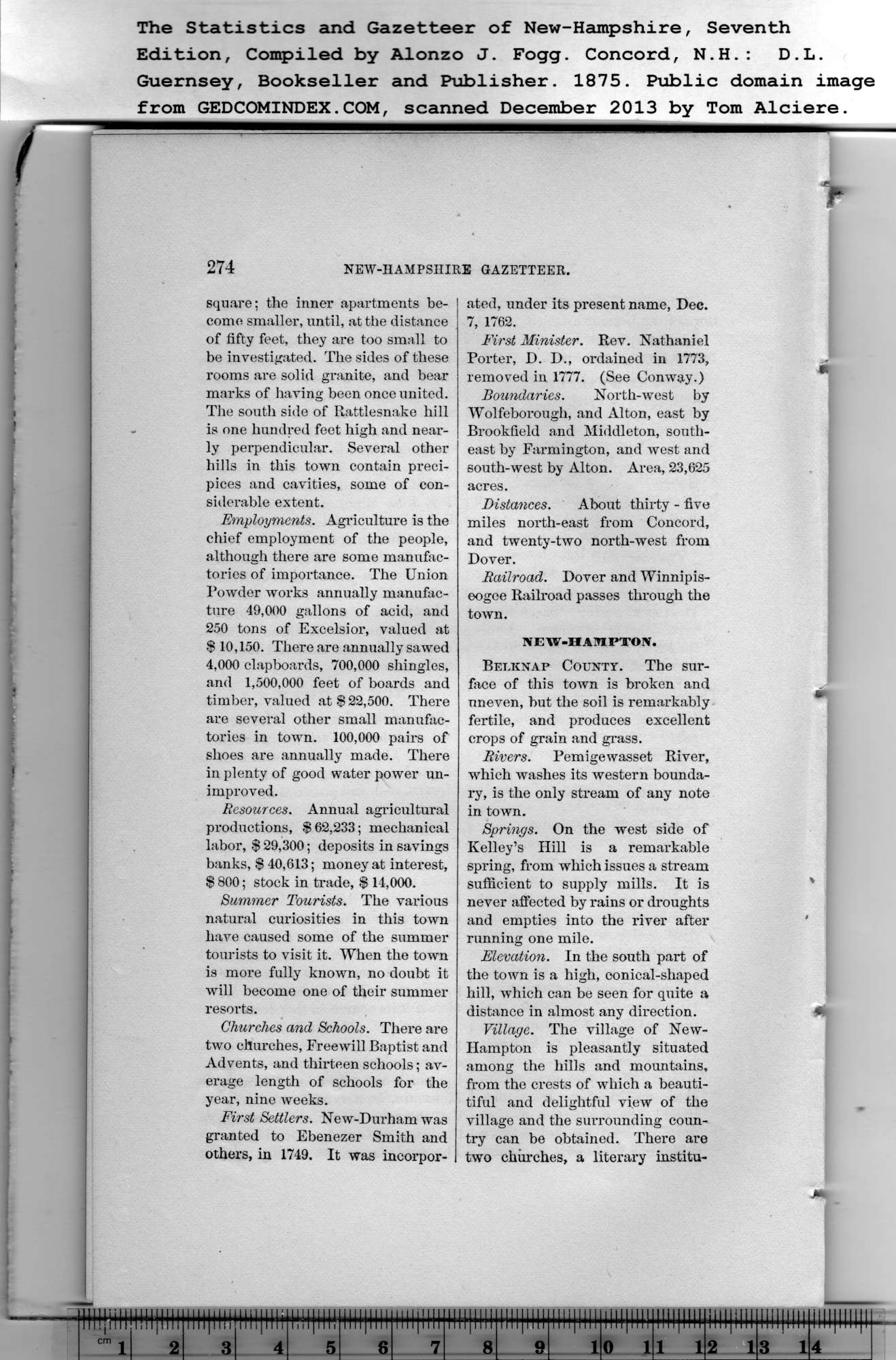|
square; the inner apartments be-
come smaller, until, at the distance
of fifty feet, they are too small to
be investigated. The sides of these
rooms are solid granite, and bear
marks of having been once united.
The south side of Rattlesnake hill
is one hundred feet high and near-
ly perpendicular. Several other
hills in this town contain preci-
pices and cavities, some of con-
siderable extent.
Employments. Agriculture is the
chief employment of the people,
although there are some manufac-
tories of importance. The Union
Powder works annually manufac-
ture 49,000 gallons of acid, and
250 tons of Excelsior, valued at
$ 10,150. There are annually sawed
4,000 clapboards, 700,000 shingles,
and 1,500,000 feet of boards and
timber, valued at $22,500. There
are several other small manufac-
tories in town. 100,000 pairs of
shoes are annually made. There
in plenty of good water power un-
improved.
Resources. Annual agricultural
productions, $62,233; mechanical
labor, $ 29,300; deposits in savings
banks, $ 40,613; money at interest,
$ 800; stock in trade, $ 14,000.
Summer Tourists. The various
natural curiosities in this town
have caused some of the summer
tourists to visit it. When the town
is more fully known, no doubt it
will become one of their summer
resorts.
Churches and Schools. There are
two churches, Freewill Baptist and
Advents, and thirteen schools; av-
erage length of schools for the
year, nine weeks.
First Settlers. New-Durham was
granted to Ebenezer Smith and
others, in 1749. It was incorpor-
ated, under its present name, Dec.
7, 1762. |
First Minister. Rev. Nathaniel
Porter, D. D., ordained in 1773,
removed in 1777. (See Conway.)
Boundaries. North-west by
Wolfeborough, and Alton, east by
Brookfield and Middleton, south-
east by Farmington, and west and
south-west by Alton. Area, 23,625
acres.
Distances. About thirty - five
miles north-east from Concord,
and twenty-two north-west from
Dover.
Railroad. Dover and Winnipis-
eogee Railroad passes through the
town.
NEW-HAMPTON.
Belknap County. The sur-
face of this toAvn is broken and
uneven, but the soil is remarkably
fertile, and produces excellent
crops of grain and grass.
Rivers. Pemigewasset River,
which washes its western bounda-
ry, is the only stream of any note
in town.
Springs. On the west side of
Kelley’s Hill is a remarkable
spring, from which issues a stream
sufficient to supply mills. It is
never affected by rains or droughts
and empties into the river after
running one mile.
Elevation. In the south part of
the town is a high, eonical-shaped
hill, which can be seen for quite a
distance in almost any direction.
Village. The village of New-
Hampton is pleasantly situated
among the bills and mountains,
from the crests of which a beauti-
tiful and delightful view of the
village and the surrounding coun-
try can be obtained. There are
two churches, a literary institu- |
